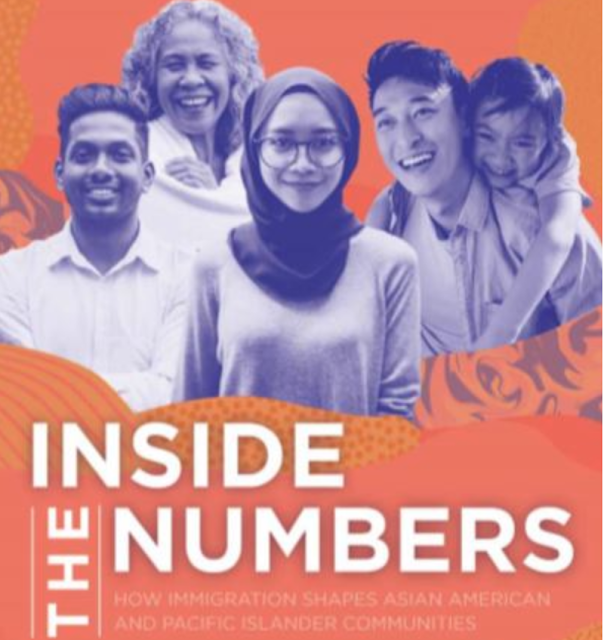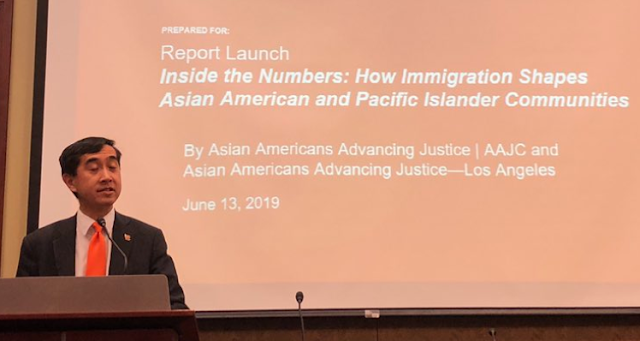
When debating the benefits of immigrants, a new report says the economic impact of AAPI immigrants cannot be overlooked.
The report released reveals there are more than 1.1 million Asian American immigrant-owned businesses in the U.S. — nearly three times as many as the 389,000 businesses owned by native-born Asian Americans. Over a third of all immigrant-owned businesses in the country are owned by Asian Americans.
Advancing Justice-LA (Asian Americans Advancing Justice – Los Angeles) and Advancing Justice | AAJC (Asian Americans Advancing Justice | AAJC) released a new report, “Inside the Numbers: How Immigration Shapes Asian American and Pacific Islander Communities,” which details the diversity of the immigrant population within the Asian American and Pacific Islander community, including contributions to the U.S. economy. Highlights of the report was revealed in a forum held in Washington, DC.
“We have been advocating for policies that help our community, not hurt them. This report shows that long visa backlogs, constant attacks on the immigrant community, and enforcement efforts are having a negative effect in our community, but still our community is a resilient one,” said John C. Yang, President and Executive Director of Asian Americans Advancing Justice | AAJC.
“Growing up as an undocumented immigrant, I know how the right policies can have a positive impact and allow for immigrants and refugees in our community to more effectively contribute and even go on to become naturalized citizens and make their mark in the world.”
The report provides background on the immigration pathways that people take to come to the U.S. and analyzes key issues, such as how AAPIs are affected by current ineffective immigration policies and are suffering because of new policy proposals. From the impact of the Muslim and refugee ban, the rescission of DACA and Temporary Protected Status, to the visa backlogs and long processing times to become naturalized citizens, the Asian American community is undeniably feeling the impact.

One
of the disturbing chapters of the report focuses on the high number of
T-Visas given to immigrants from Asian countries. T-Visas are given to
some victims of human trafficking.
In
2017, the majority of T visa recipients (246 individuals, 52 percent)
were from Asian countries, says the report. The Philippines alone
accounted for 40 percent of the global total of T visas issued in 2017,
and India 5 percent.
A large portion of the Filipino nationals who received T visas were victims of labor trafficking. According to a United Nations study, Filipino workers are usually trafficked through illegal recruitment in which they pay high fees for the promise of nonexistent jobs or jobs that pay less than those promised. According to a Polaris report, Filipino workers on temporary non-immigrant visas have the second-highest rates of human trafficking after Mexicans.
There are nearly 3.7 million aspiring immigrants waiting for family preference visas, and more than 40% of the people stuck in the family backlogs are from Asia. In the final section in the report, Advancing Justice | AAJC and Advancing Justice-LA share several policy recommendations:
- Pass legislation to update the family immigration system and resolve the problem of family backlogs.
- Ask Congress to defund and repeal all iterations of the Muslim Ban and prevent any future president from enacting any new, similar bans.
- Recommend the administration honor the requests of asylum seekers, without being criminalized, turned away, detained indefinitely, or separated from their families and cuts made to the enforcement, detention, and deportation budgets of ICE and CBP within the Department of Homeland Security.
In the current debate on immigration that is swirling through the country today, immigrants from Asia and their contributions to the overall welfare of the US are often not included despite the fact The report should be must reading by Congress when proposing immigration reforms or countering the false allegations coming from the White House.
“Over 12 million Asian immigrants and 220,000 Pacific Islander immigrants live in the U.S., yet they are often overlooked in domestic policies and immigration policy,” said Jeffer Giang, Research Analyst at Asian Americans Advancing Justice – Los Angeles.
“In order for our communities to thrive, we need to reduce barriers to accessing critical services and opportunities,” said Glang. “This report will help policy- and decision-makers need to better understand the contributions and needs of Asian Americans and Pacific Islanders in this country.”
To read the complete report, click here.
AsAmNews has Asian America in its heart. We’re an all-volunteer effort of dedicated staff and interns. Check out our Twitter feed and Facebook page for more content. Please consider interning, joining our staff or submitting a story


